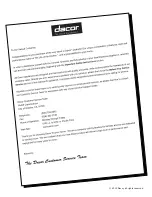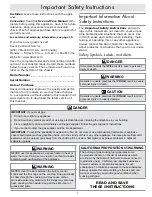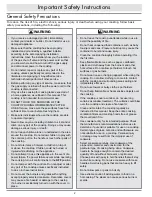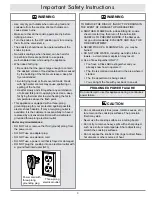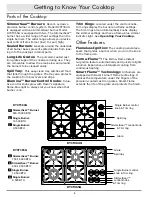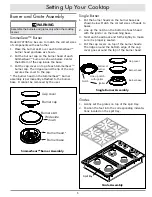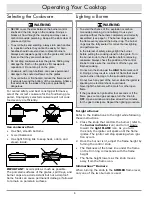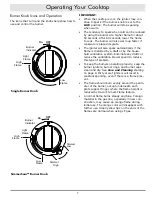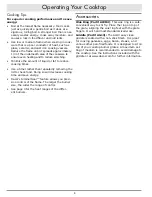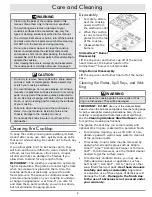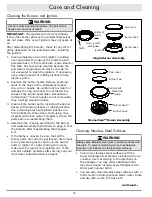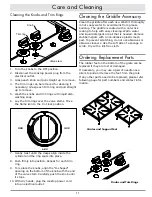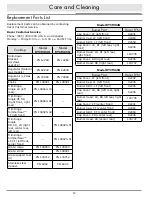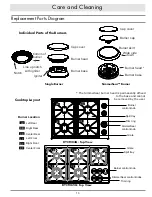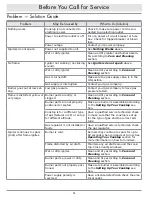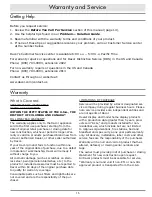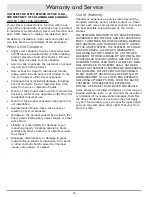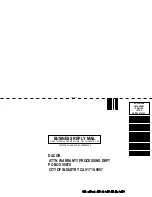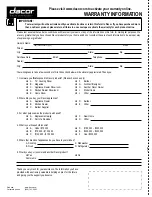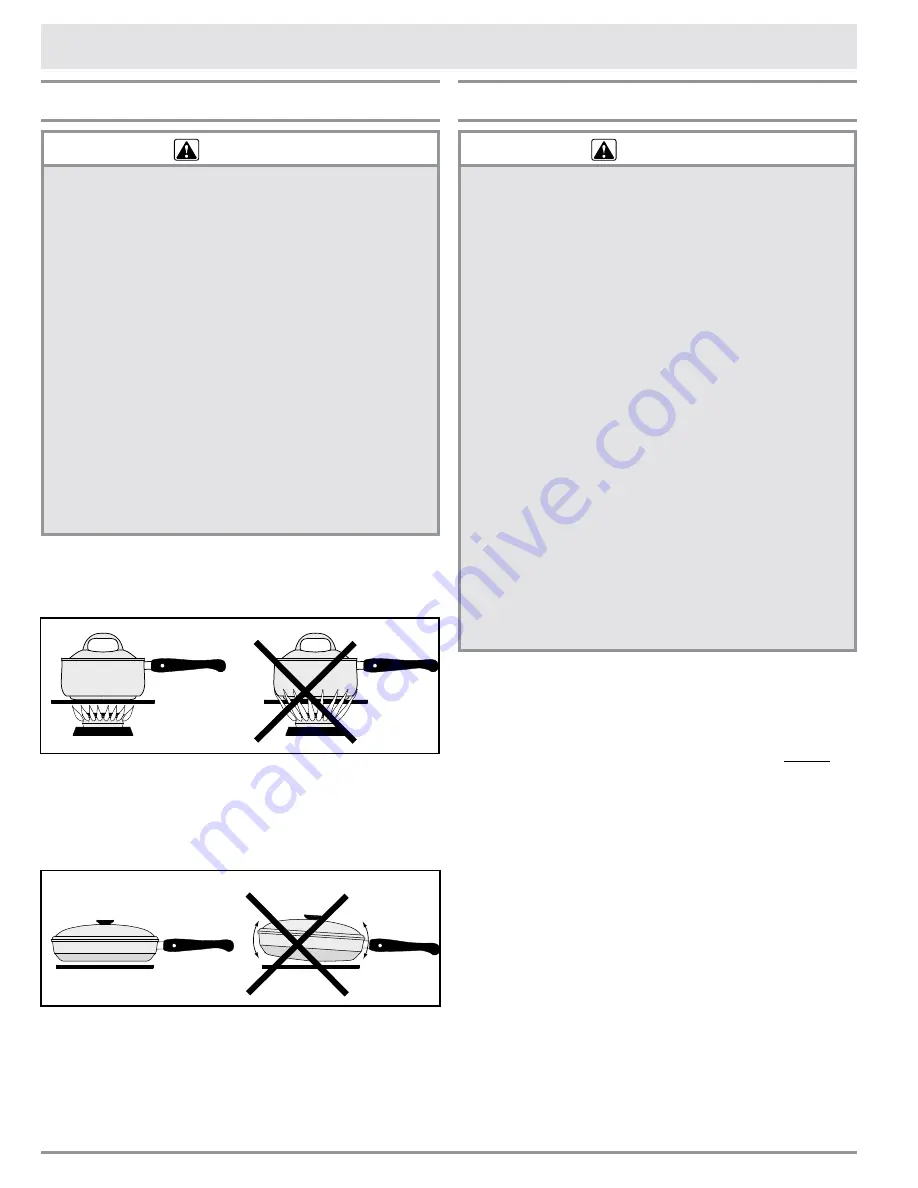
6
Lighting a Burner
WARNING
• To avoid the chance of fire, explosion or carbon
monoxide poisoning, do not attempt to use your
cooktop without the burners completely and correctly
assembled (see page 5). The burner rings spread
the flame evenly around the burner cap. The burner
rings must be fully seated for correct burner lighting
and performance.
• In the interest of safety, always light the burner
before putting the cooking utensil on the grate. Turn
the burner knob to the off position before removing
cookware. Always check the position of the control
knobs to make sure the cooktop is off when you are
finished cooking.
• Do not turn the knob past the
HIGH
flame mark until
lit. Doing so may result in a burst of flame that could
cause burns or damage to the surrounding area.
• Do not touch any part of the burner while the igniter is
sparking. An electrical shock could result.
• Never light the burners with a match or other open
flame.
• If the gas does not ignite after four seconds or if the
flame goes out and gas escapes, turn the knob to
OFF
. Open a window and allow at least five minutes
for the gas to dissipate. Repeat the lighting procedure.
To Light a Burner:
Refer to the illustrations to the right while following
these instructions.
1. Press the knob that controls the burner (refer to
the
burner indicator
icon) and turn it slowly
toward the
light FLAME
icon. As you turn
the knob, the igniter will spark until the flame
ignites. The igniter will stop sparking when igni-
tion occurs.
2. Once the burner is lit, adjust the flame height by
turning the control knob.
• The thickness of the black line under the flame
on the trim ring corresponds with the flame
height.
• The flame height lowers as the knob moves
away from the flame icon.
SimmerSear™ Burners
When turning the knob to the
SIMMER
flame level,
only one of the two burners is used.
Selecting the Cookware
WARNING
• NEVER cover the slots between the burner control
knobs and the trim rings on the cooktop. Doing so
blocks air flow through the cooktop and may cause
carbon monoxide poisoning. Keep all the slots clear of
grease and grime.
• To avoid burns and scalding, always turn pan handles
to a position where they cannot be easily hit. Also,
handles should not extend over adjacent burners.
Always set cookware gently onto the grates and center
them so that they are well-balanced.
• Do not drag cookware across the grates. Sliding may
damage the finish on the grates. Lift cookware to
reposition it. Do not drop it on the grate.
• Cookware with rough bottoms can cause permanent
damage to the coated surfaces on the grates.
• To avoid burns or fire hazard, reduce the flame level if
it extends beyond the bottom of the cookware. A flame
that extends up the sides of the pan is potentially
dangerous.
For overall safety and best cooktop performance,
select the correct cookware for the food being pre-
pared. Improperly selected cookware will not cook
food evenly or efficiently.
Use cookware that:
• Has flat, smooth bottoms.
• Is well balanced.
• Has tight fitting lids to keep heat, odors, and
steam inside.
IMPORTANT
: Avoid spills as much as possible.
The porcelain surfaces of the grates, spill trays, and
burner caps are acid-resistant but not acid-proof.
Some foods can cause permanent damage if allowed
to remain on porcelain surfaces.
Operating Your Cooktop


